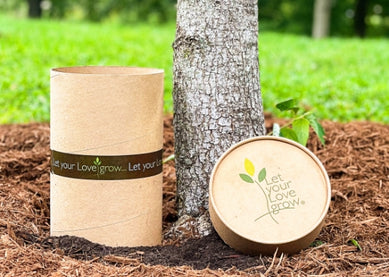4 Things Millennials Should Expect After Losing a Loved One
As a millennial, you are in the stage of life where you may feel invincible — you have fully established yourself as an adult, living, working and making memories independently. But as you navigate this stage of life, a loss may happen unexpectedly. Losing a person impacts your family, social groups and overall well-being. Millennials who experience grief may share similar experiences, so here are our top four things we believe millennials will experience after losing a loved one.
1. A Period of Love and Support
When loss first happens, you may feel overwhelmed by the weight of your loss while others try to help. Many of your grieving friends, family members and coworkers will be quick to rush to your side in support. The weeks following your loss will be full of phone calls, text messages, cards and homemade meals. During this time, you should expect to hear the same message repeated by different people. They’ll say “I’m here if you want to talk,” “I’m sorry for your loss” or similar sentiments. Losing a loved one is a difficult experience — take advantage of your support systems during this time of healing.
2. Dissonance Between Loss and Life
As time passes by, the initial outpouring of love slows. People start to get back to their routines and their rush to contact you will fade. This doesn’t mean that your support system cares any less — life moves fast and everyone is trying to keep up with their own day-to-day. For millennials, in particular, social media adds an interesting layer to the period after losing a loved one. Social content seems out of place as you navigate loss, and what you see doesn’t always align with your experience. One second you could get a text with condolences for your loss and the next, you could get a funny social media post sent to you.
Overall, there’s a feeling of dissonance between loss and life as everyone keeps moving while you might stay at a standstill. We recommend that you take this time to care for yourself — this could mean reading a book on grief and losing a loved one, starting a journal or filling your time by preserving memories. There are no guidelines for the time after your loss, so surround yourself with the people you love and do what makes you happy.
3. Feelings of Isolation
You may find yourself eventually experiencing feelings of isolation. It feels like those your age have not experienced your level of grief. On top of this, other millennials may seem uncomfortable discussing death with a grieving friend. It may be hard to find someone in your life who understands what you’re going through and is willing to listen extensively.
It is essential to lean on your inner circle of grieving friends and family members — they are likely sharing a similar experience and would love to talk. However, some millennials may prefer to talk to others their age about their experience of losing a loved one. In this circumstance, we recommend seeking out an age-specific support group. The internet may become an asset in your grief journey. Facebook groups, blogs such as Modern Loss and digital support groups such as The Dinner Party can be great ways to connect with other millennials who have experienced loss and find support together.
4. Different Patterns of Mourning
You may notice that different people who knew your loved one cope with the loss differently. Their reaction can be due to their age, gender, culture or relationship with the deceased. Some experience grief quietly, while others are outspoken about their feelings. Some may choose to spend time alone and others experience their grief physically, focusing their pent-up emotion on goal-oriented activities. Needless to say, there’s a broad spectrum of reactions to loss.
After losing a loved one, remember: Just because someone doesn’t express grief the same way as you do, it doesn't mean that their feelings are any less real. A clear line of communication within your family or grieving friend group may help identify and release emotions on all sides. Always be ready to extend an offer of support and accept help.
Finding Life After Loss
There’s no timeline for grief — you must find a way of adapting to your loss that works for you. We understand that it’s devastating to lose a parent, sibling, friend or mentor. It’s often therapeutic to find ways to honor your loved one wherever you can by celebrating holidays, discussing your memories or giving them new life through a memorial plant.
Grief doesn't just go away, but taking the time to surround yourself with those you care about and finding ways to appreciate the one you lost can help ease the pain. For additional helpful tips on life after losing a loved one, visit the Let Your Love Grow blog.







